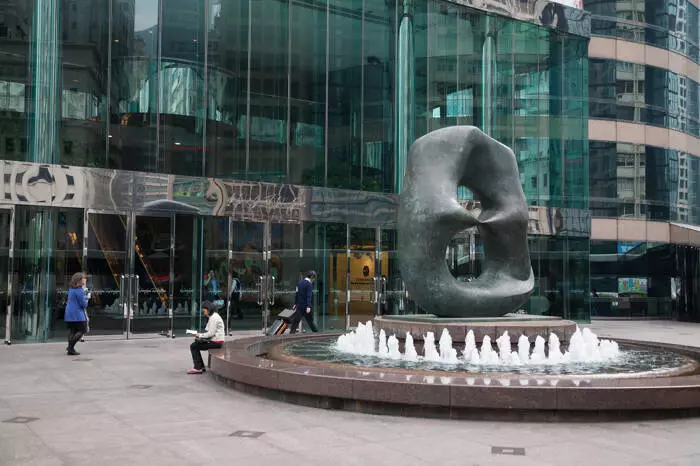The Hang Seng Index has struggled over the past month, concluding its latest trading week with a 0.41% decline. This marks the fourth consecutive week of losses, signaling ongoing challenges within the market. The political atmosphere surrounding the upcoming U.S. presidential election and a simultaneous downturn in the technology sector have partly compounded these difficulties. As analysts dissect the implications of these developments, it becomes evident that external factors significantly impact market performance, particularly in Asia.
The recent intensification of the U.S. election cycle is reverberating across global markets. With Donald Trump gaining ground in the polls against Kamala Harris, the specter of renewed trade tensions looms large. Speculation regarding a potential Trump return to the presidency raises fears of renewed tariffs on Chinese goods, which could have dire consequences for the already delicate Chinese economy. The financial markets are acutely aware of the implications this would have on trade relationships and economic stability, suggesting that volatility will remain a constant in the near term.
The influence of the U.S. elections is felt heavily in the technology sector, compounding the pressures already present from recent downturns in technological stocks both in the U.S. and Asia. The Hang Seng Tech Index (HSTECH) dropped 1.19% during the week, reflecting an ongoing trend of weakness. Major players, including Alibaba and Tencent, posted minor declines, while Baidu managed to rise by 1.49%. This mixed performance underscores the precarious nature of the tech landscape, where even small shifts in broader market sentiment can lead to significant fluctuations in stock prices.
Contrarily, the real estate sector emerged as a beacon of optimism during a time of uncertainty. Positive sentiment regarding China’s policy measures stimulated the Hang Seng Mainland Properties Index (HMPI), which appreciated by 4.80%. This dichotomy demonstrates how varying sectors can respond differently to market conditions, with real estate potentially benefiting from local government stability efforts despite broader market skepticism. These trends remind investors that sectors are not monolithic and that diversifying investments can help mitigate risks associated with political and economic volatility.
Turning our attention to the mainland markets, fears of impending U.S. tariffs significantly overshadowed more hopeful indicators like the PMI numbers. The CSI 300 fell by 1.68%, while the Shanghai Composite decreased by 0.84%, illustrating a pervasive anxiety about external pressures on domestic growth. This situation reveals how interconnected global markets are and how instability in one region can rapidly cascade into others, particularly in a tightly linked economic environment like that of East Asia.
In commodities, mixed results characterized the trading week. The iron ore market faced a decline of 2.72%, while gold prices similarly slipped, nudging down by 0.41% following a robust year. Interestingly, the price of WTI Crude oil saw a rise, as geopolitical tensions—particularly in the Middle East—captured investor attention. The diverse trajectories in commodities reflect the complex interplay of factors influencing investor decisions, from regional crises to speculations around future economic policy.
Investors should keep a keen eye on several imminent events that promise to shape market dynamics further. The upcoming decisions from the Reserve Bank of Australia (RBA) on interest rates, the U.S. presidential election results, and the National People’s Congress Standing Committee’s meeting are all influential deadlines. They have the potential to offer insight into future policy shifts, fiscal stimulus, and market confidence levels.
In light of these uncertainties, stakeholders must navigate these turbulent waters with caution. A potential Trump victory could overshadow initiatives from Beijing aimed at boosting the economy, reiterating the necessity of adaptability in investment strategies.
The market landscape is undoubtedly challenging, characterized by political tension, sector-specific struggles, and mixed commodity performance. For investors, understanding these trends and being responsive to new developments will be crucial in managing risks effectively. Keeping informed through detailed analyses and updates is imperative in today’s fast-paced financial climate where every decision can significantly impact investment outcomes.

